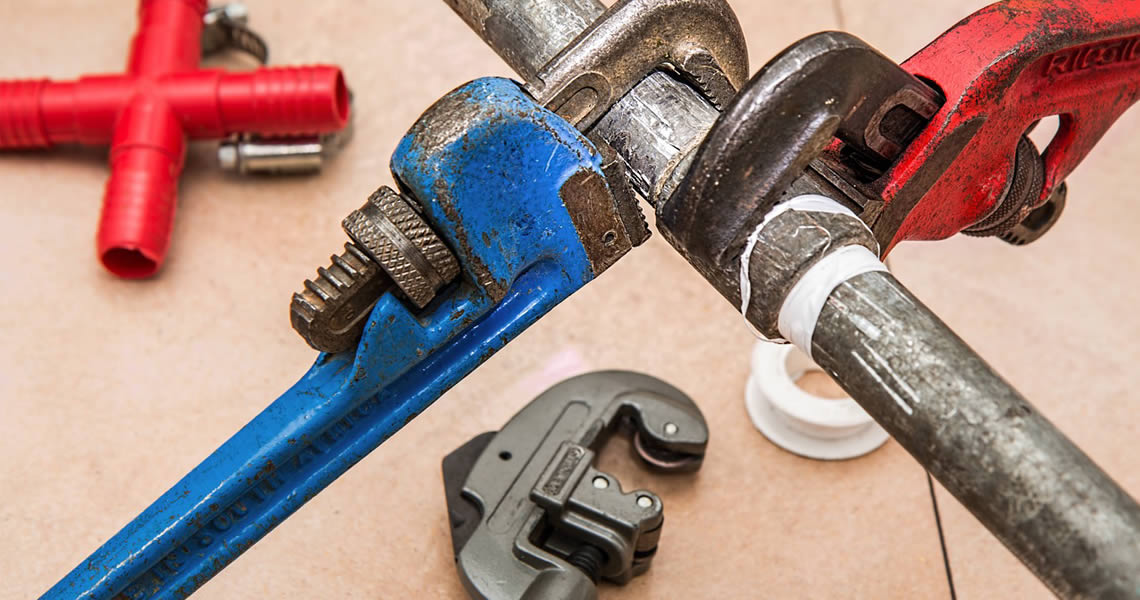- Home
- ←
- Five reasons to make sure your tradie is licensed
Five reasons to make sure your tradie is licensed

From complying with the law to keeping your family safe, here’s why it’s important to get your DIY carried out by a qualified tradie.
One of the most common questions we get asked as certified plumbers and gasfitters is, do I need to use a licensed tradesman? Short answer – yes. Why? Here are the top five reasons:
- It’s the law
To become a certified plumber, gasfitter or drainlayer in New Zealand, you must be registered with the Plumbers, Gasfitters, and Drainlayers Board (PGDB). Only the PGDB can issue a NZ Practising Licence, so if a tradesperson doesn’t have a card, he or she is not legally allowed to carry out work on your property. Ask to see their card before you hire them. - You’ll protect your insurance policy
Insurance companies don’t need more help in denying your claim! Plumbing, gasfitting or drainlaying work done on your property by an unlicensed tradie can void your insurance policy. This means, if anything untoward happens in the future to do with, or as a result of, that work, you won’t have any financial recourse. - It’ll keep your home safe
Home is supposed to be the safest place there is, and it will be if you have qualified tradespeople working on it. A potentially dangerous mix of high temperatures, pressures, gas, and electricity live in the pipes and fittings between the walls, in the roof and under the floor of your house. A certified plumber, gasfitter or drainlayer is trained and qualified to handle these things and does it with your family’s safety in mind. - It’ll ensure your property’s value
A good portion of your home’s value comes from what you can’t see. That value can quickly decrease when the builder’s report comes back with rotten-this and dangerous-that and a question of ‘who the hell fitted the plumbing on this place?!’ - You’ll get the latest knowledge
To retain their license, plumbers, gasfitters and drainlayers must attend annual training sessions. These professional development occasions ensure your tradie is up-to-date with current health and safety standards, building codes, best practices, laws and installation requirements.
Doing it yourself
As New Zealanders, that number 8 wire approach to doing things ourselves is well and truly in our DNA. It’s second nature to us Kiwis to see a problem and want to fix it ourselves. But there is a limit to what we can, and are allowed, to do.
Some of the more common DIY tasks around the house can be tackled by you – up to a point. But when you reach that threshold, it’s time to call in the licensed tradie. Here are a few examples:
Sanitary plumbing
The PDGB defines sanitary plumbing as “any work involved in fixing or unfixing any pipe, plumbing fixture or appliance, including any trap, waste or soil pipe, ventilation pipe, or overflow pipe and any pipe that supplies or is intended to supply water”.
You, your mate, or your father-in-law can undertake some DIY when it comes to sanitary plumbing, such as installing your dishwasher or washing machine, or replacing or repairing taps, ball valves and plugs, but not much else!
Gasfitting
Restricted gasfitting includes “installing, altering or repairing gas appliances” as defined by the PGDB. Anyone can carry out basic work to portable barbeques and patio heaters that have a gas bottle attached (although we recommend you know what you are doing). But, if you’re wanting to touch gas pipes, vents or a flue pipe, or build a gas appliance, you need to enlist a licensed gasfitter. This includes gas installation and any work on gas appliances that are fixed in buildings, transportable homes and vehicles.
Drainlaying
The PGDB defines restricted drainlaying as “any work involving the installation, alteration or repairs to a drain.” The drainlaying work an unlicensed person can carry out is very limited – think clearing a blocked drain, and only if that doesn’t involve altering or repairing the inspection or ventilation pipe.
Compliance is key
Everything else must comply with the building code and so must be carried out by a licensed plumber or gasfitter. Furthermore, if your work requires a building consent, it must be approved by a building inspector. A code of compliance certificate will only be issued once the inspector has signed the work off.
At iPlumber, our team of plumbers and gasfitters are all certified and experienced in carrying out work on your property. We’re also happy to give you a bit of free DIY advice if you want to get the job started.

Navman monitors the exact location of the entire fleet in real time.
Fleet visibility assists with getting the closest technician to the job in the shortest amount of time, as well as providing accurate reportable activity and job costing, saving you money.

Like what you’ve read?
Request a quote or book a job now!

